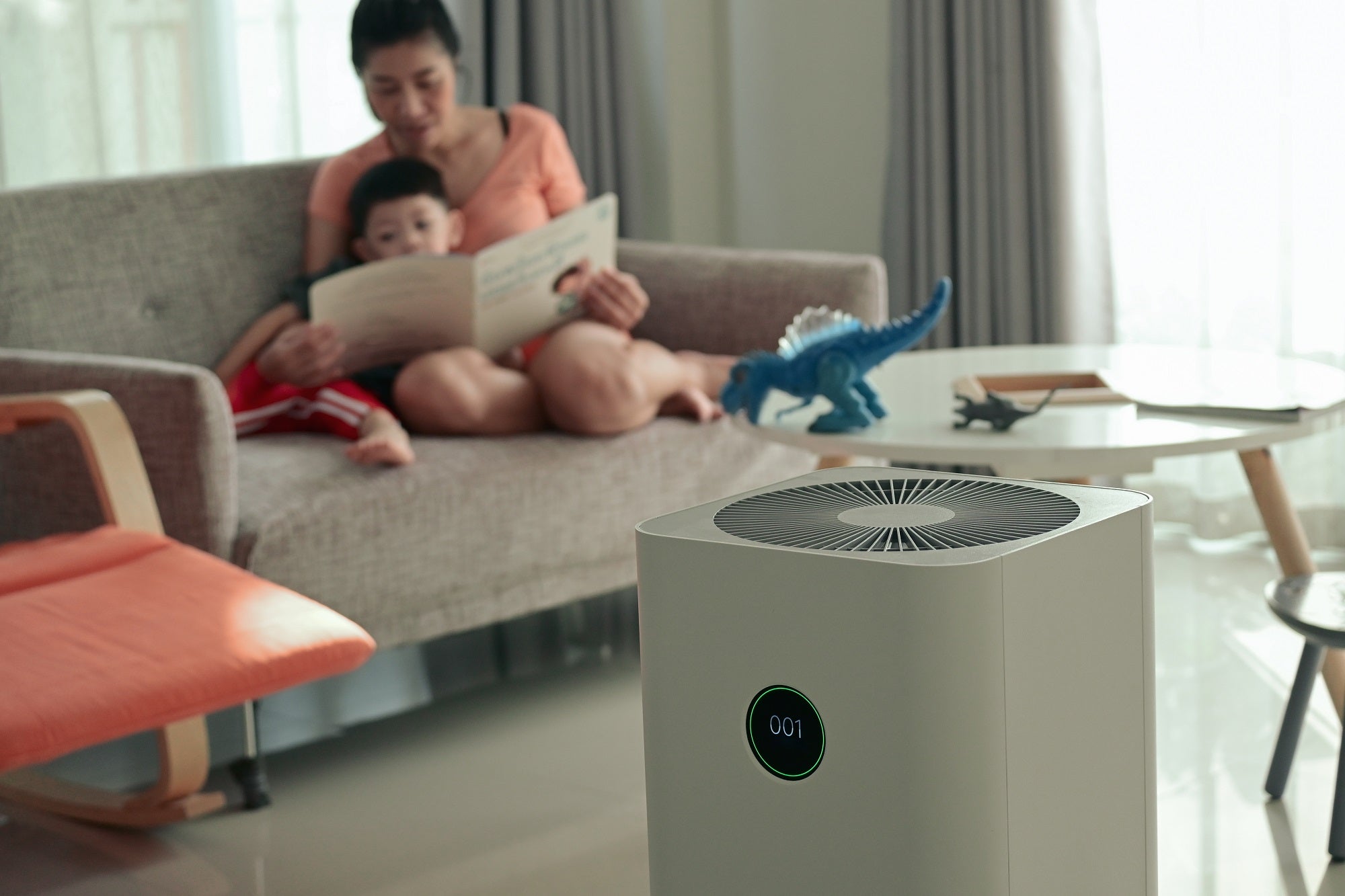Indoor Air Quality: A Key to Improving Cardiovascular Health

Most of us associate air pollution with smoggy cityscapes and vehicle emissions. But what about the air inside our homes? If you think you're safe indoors, think again. Research by the World Heart Federation has found that air pollution is increasingly responsible for cardiovascular conditions, with 1.9 million deaths every year from heart disease and nearly a million strokes due to outdoor air pollution alone.
And it's not just outdoor pollution we need to worry about. Invisible airborne particles, including dust, smoke, mould spores, and volatile organic compounds (VOCs), can penetrate deep into our lungs and bloodstream. These tiny pollutants affect heart rhythm, blood clotting, and blood pressure–all of which contribute to heart disease and stroke risks.
So, what can we do? While we may have limited control over outdoor air pollution, we can take steps to improve the air quality inside our homes and workplaces. A medical-grade air purifier, such as the MedicAir Pro Mini, can help create a heart-healthy environment indoors. Let’s understand the connection between air quality and cardiovascular health and how the right air purifier can help protect your heart.
How Air Pollution Affects Your Heart?
Air pollution is often linked to lung diseases but research shows that its effects go far beyond the respiratory system. Fine particulate matter (PM2.5)–microscopic particles small enough to be inhaled deep into the lungs–enters the bloodstream and triggers inflammation, a key driver of cardiovascular disease.
Here’s how poor air quality can harm your heart:
1. Increased blood pressure
Polluted air can cause blood vessels to constrict, leading to higher blood pressure, a major risk factor for heart attacks and strokes.
2. Heart rhythm disruptions
Tiny airborne toxins can interfere with electrical signals in the heart, potentially leading to irregular heartbeats (arrhythmias).
3. Plaque buildup in arteries
Long-term exposure to polluted air contributes to atherosclerosis, a condition where fatty deposits clog arteries, increasing the risk of heart attacks.
4. Blood clot formation
Air pollution has also been linked to an increased risk of clotting, which can block blood flow to the heart or brain, leading to severe cardiovascular events.
With heart disease being a leading cause of death globally, it’s clear that addressing air quality isn’t just about breathing easier; it’s about protecting your heart.
How Indoor Air Quality Plays a Role?
Many people assume their homes provide a refuge from pollution but studies show that indoor air can be 2 to 5 times more polluted than outdoor air. Everyday sources such as cooking fumes, cleaning chemicals, pet dander, mould spores, and even furniture can release harmful particles into the air. If you or a loved one has a preexisting heart condition, indoor air pollution can worsen symptoms and increase the risk of complications.
Simple steps like improving ventilation, reducing indoor pollutants, and using a medical-grade air purifier can make a huge difference in air quality and cardiovascular health.
Choosing the Best Air Purifier for Cardiovascular Patients
When it comes to protecting heart health, not all air purifiers are created equal. If you’re looking for the best air purifier for cardiovascular patients, consider these key factors:
1. High-Efficiency Particulate Filtration (HEPA) 13/14
Look for a purifier with HEPA 13/14 filters that can remove at least 99.97% of airborne particles, including PM2.5 pollutants. Our MedicAir Pro Mini is equipped with a HEPA 14 filter that captures 99.99% of pollutants and allergens at 0.1 microns.
2. Activated carbon filters
These are essential for trapping smoke, harmful gases and VOCs, which can trigger inflammation and worsen heart conditions. All our MedicAir air filters contain an activated carbon layer that removes these odours from the air.
3. Whisper-quiet operation
Since air purifiers should run continuously, a low-noise model ensures a peaceful environment, especially for those who need quality rest for heart health. Our MedicAir Pro Mini, for instance, can operate at as low as 21 dB, making it ideal for bedrooms, offices, and nurseries.
4. Coverage area
Choose a purifier that suits the size of your room for optimal efficiency. You can use the MedicAir Product Finder on our website, which helps determine the right air purifier for your needs. It can also calculate how many units you’ll need based on the dimensions of your room.
Final Thoughts
Your heart works hard every day, so why make it battle against polluted air? With research showing a clear link between air quality and cardiovascular health, taking steps to improve the air you breathe should be a priority. While outdoor pollution remains a global challenge, ensuring clean indoor air is within your control.
Investing in the best air purifier for cardiovascular patients, like the MedicAir Pro Mini, trusted by the NHS and WHO, can significantly reduce indoor pollutants and help safeguard your cardiovascular health. So, bring home a MedicAir air purifier, your heart deserves it.
Recent Blogs
Independent Global Testing Confirms MedicAir’s Filtration Excellence
Two of MedicAir’s flagship systems – the MedicAir Pro and MedicAir Pro Max – have been independently verified for their outstanding performance in real-world environments, following rigorous testing conducted in Kuwait by international air filtration expert Dr Iyad Al-Attar.
Heatwaves and Indoor Air Quality: How MedicAir Safeguards Health and Productivity
The recent heatwave has brought swelteringly high temperatures across the UK, significantly impacting indoor air quality (IAQ) and indoor environmental quality (IEQ).
Why Indoor Air Quality Matters for Cannabis Grow Rooms
With MedicAir, you get more than just air purification–you get peace of mind, knowing your plants are thriving in a controlled, contaminant-free environment.


